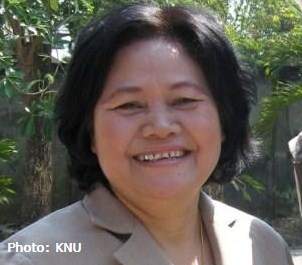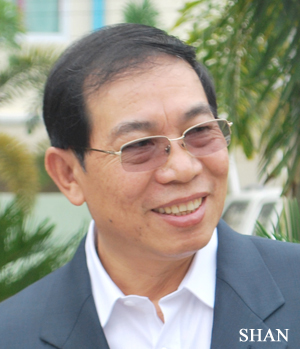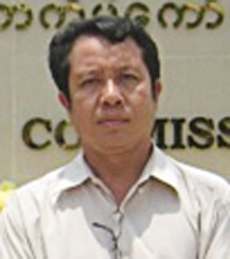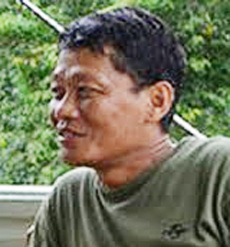On the first anniversary of President Thein Sein’s publicized call to the country’s armed opposition movements for peace talks, which falls today, 17 August, SHAN has interviewed 7 ethnic leaders.
The following are the excerpts:
We have just started the journey. There is still a long way to go.

We have not been able to implement the terms of the agreements much. The government has declared peace, but the armed forces is following a different path.
- Already we have fought 30 times
- We are still unable to establish offices in Monghta and Homong sub-townships
- Cooperation against drugs has yet to materialize
For the next formal meeting, we will need to discuss 3 topics:
- Review of our agreements (It has signed 3 agreements so far – Editor)
- The narcotics issue
- Political dialogue

The President says if the highlands are equally developed (better roads, bridges, communications etc), the gap between the Burmans and the non-Burmans will be plugged. I don’t want to say he’s wrong. But he’s only partly right. To the non-Burmans, their ethnic nationality right is their first priority. The eternal peace he’s been speaking of is not impossible, if he can also take into consideration our concerns.

Without resolving political issues by political means, the peace process may go on for another 10 years, 15 years, and nothing will change. What the ethnic peoples want are the Right of Self Determination and Equality. It is not Secession.
And we need the government to help explain it to the majority Burman people and the Armed Forces from the bottom to the top level.

There is still fighting in Kachin State and against the RCSS and SSPP (Shan State Progress Party). Ceasefire, though signed, therefore is still uncertain.
On the other hand, forming political parties to contest elections and amend the constitution in the parliament, as proposed by the government, cannot be a fair and square form of political dialogue. It is to coerce us into submission after they’ve got us where they wanted. It is an indirect way of demanding that we surrender. We therefore cannot say the prospects for peace have become brighter.

The government refuses to see things our way, but is only bent on forcing us to follow the way it has chosen. That is why the peace talks have not been really successful. On the other hand, the government and the armed forces are pursuing a systematic strategy of one holding peace talks and the other going on with the military offensives. This policy poses as an obstacle to the peace process. We therefore think it’s time the peace roadmap was reviewed.

A few days ago, I read in the papers that the President is following a 3 level peace process: state, union and union parliament. I would suggest there is a big workshop where we can all open up our hearts and minds between the second and third levels.
Successive governments had offered peace talks, but they turned out to be exchanges of brains. At present, the Thein Sein government is trying to win our hearts by using their brains. But I believe lasting peace will come about only when there is an exchange of hearts, theirs and ours.



